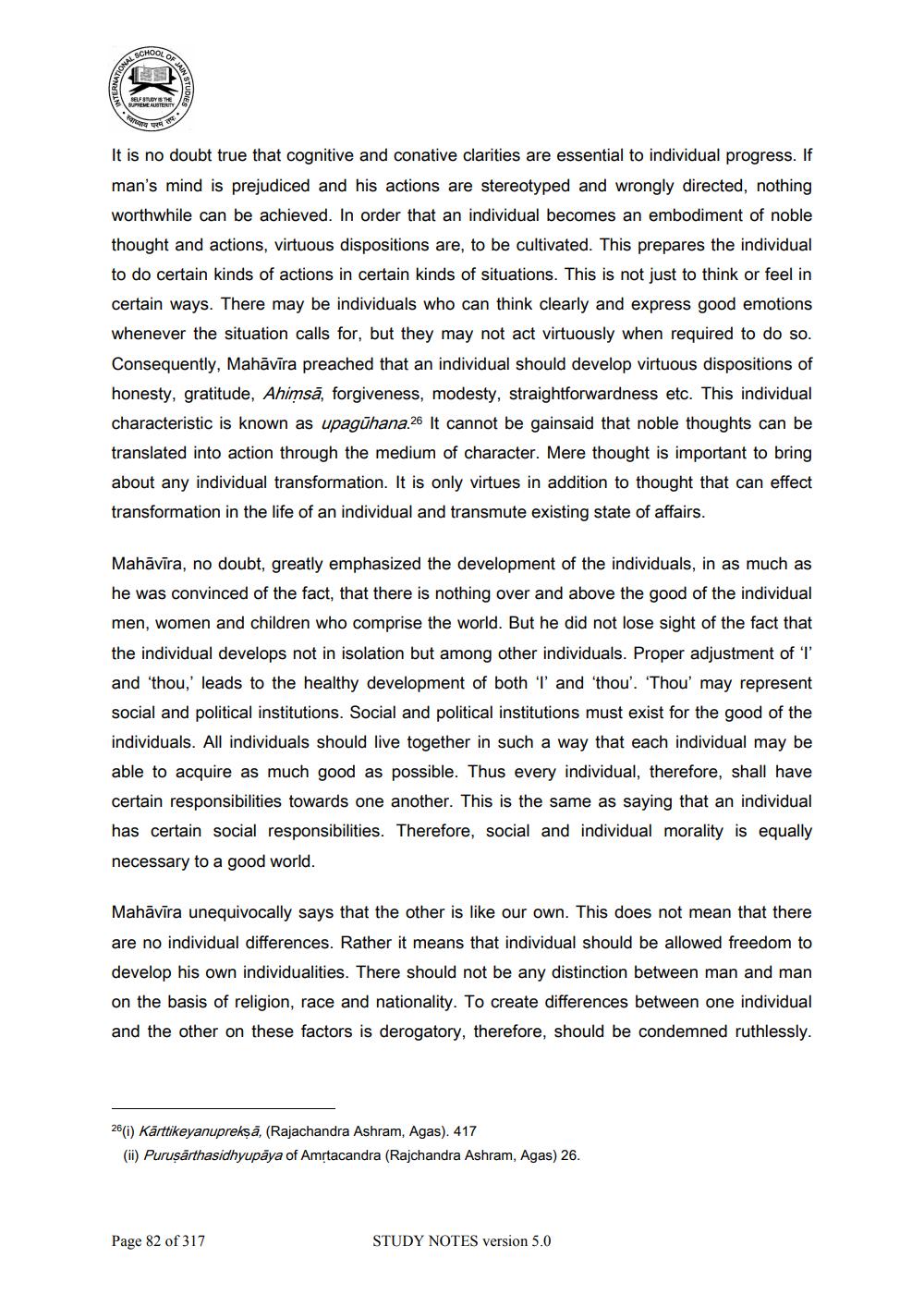________________
It is no doubt true that cognitive and conative clarities are essential to individual progress. If man's mind is prejudiced and his actions are stereotyped and wrongly directed, nothing worthwhile can be achieved. In order that an individual becomes an embodiment of noble thought and actions, virtuous dispositions are, to be cultivated. This prepares the individual to do certain kinds of actions in certain kinds of situations. This is not just to think or feel in certain ways. There may be individuals who can think clearly and express good emotions whenever the situation calls for, but they may not act virtuously when required to do so. Consequently, Mahāvīra preached that an individual should develop virtuous dispositions of honesty, gratitude, Ahimsā, forgiveness, modesty, straightforwardness etc. This individual characteristic is known as upagūhana.26 It cannot be gainsaid that noble thoughts can be translated into action through the medium of character. Mere thought is important to bring about any individual transformation. It is only virtues in addition to thought that can effect transformation in the life of an individual and transmute existing state of affairs.
Mahāvīra, no doubt, greatly emphasized the development of the individuals, in as much as he was convinced of the fact, that there is nothing over and above the good of the individual men, women and children who comprise the world. But he did not lose sight of the fact that the individual develops not in isolation but among other individuals. Proper adjustment of T and 'thou,' leads to the healthy development of both l' and 'thou'. 'Thou' may represent social and political institutions. Social and political institutions must exist for the good of the individuals. All individuals should live together in such a way that each individual may be able to acquire as much good as possible. Thus every individual, therefore, shall have certain responsibilities towards one another. This is the same as saying that an individual has certain social responsibilities. Therefore, social and individual morality is equally necessary to a good world.
Mahāvīra unequivocally says that the other is like our own. This does not mean that there are no individual differences. Rather it means that individual should be allowed freedom to develop his own individualities. There should not be any distinction between man and man on the basis of religion, race and nationality. To create differences between one individual and the other on these factors is derogatory, therefore, should be condemned ruthlessly.
26() Kārttikeyanuprekṣā, (Rajachandra Ashram, Agas). 417
(ii) Puruşārthasidhyupāya of Amrtacandra (Rajchandra Ashram, Agas) 26.
Page 82 of 317
STUDY NOTES version 5.0




